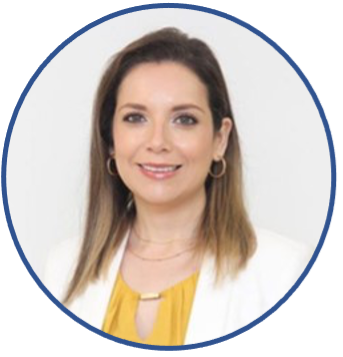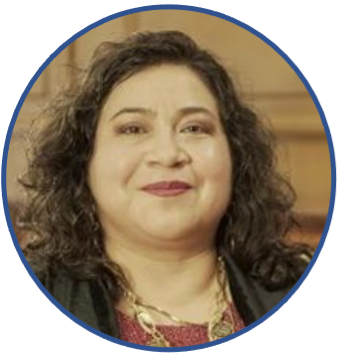
Disponible en
Español
![]() .
.
V Fintech Forum Meeting
March 23 to March 25, 2022
Digital Format

The fifth edition of the Fintech Forum meeting was held in digital format, and was co-organized by CEMLA and the Central Bank of Spain. In this edition the keynote speakers where: Professor Rodney Garratt from UCSB, Professor Barry Eichengreen from UC-Berkeley, and Dr. Stijn Claessens who is the head of financial stability policy and deputy head of the Monetary and Economic Department, BIS. The main topics discussed in this meeting where digital currencies such as CBDCs and Stablecoins, as well as BigTech and related topics such as regulatory, economic, and financial policy issues.
Day 1
The first day began with opening remarks from Dr. Manuel Ramos-Francia (CEMLA) and Dr. Juan Ayuso (Central Bank of Spain). In particular, a general overview of the topics to be discussed within the meeting were briefly introduced. Next, Prof. Rodney Garratt gave a keynote lecture on the distinctive differences between stablecoins and traditional cryptoassets. For instance, he noted that stablecoins were initially introduced to meet the demand for a cryptoasset with a stable price, and that the current concept of a stablecoin can be traced back to at least the so-called digital depository receipt of Project Jasper. After this, the talk centered mostly on the main features of a stablecoin, mentioning both their possible advantages as well as possible disadvantages. The presentation concluded with an in-depth discussion regarding the evolution and future trends of these assets.
After a brief break, the first session of the meeting was devoted to discuss the potential benefits and risks of stablecoins for the financial system. In particular, Harish Natarajan of the World Bank, gave a talk regarding the implications of adopting digital money for EMDEs. In order to do so, he first gave an overall description of why Central Banks in emerging markets could be interested in adopting some form of a digital currency. However, aside of the possible benefits, he next focused on possible policy and regulatory risks. For instance, he described in detail the possible development, macroeconomic, and cross-border challenges related to digital money adoption by EMDEs. Then, he centered his discussion on other possible alternatives to digital currency, such as Mobile Money, Fast Payments, and Digital Remittances. He concluded his talk with some final remarks. In particular, we note the following: “Stablecoins aspire to improve inclusion and lower remittance costs – but they are neither necessary nor sufficient”, “Stablecoins pose a number of risks and these are further exacerbated in EMDEs”, and “So far, perhaps their most important contribution is to shine a light on the inclusion and cost challenges”.
Finally, Dr. Mills of the Fed Board gave a talk entitled: “Potential Benefits and Risks of Stablecoins for the Financial System”. In order to motivate the topic, he first posed and answered the following questions: What is money? What is the process through which value is transferred? What is the role of institutions in the transfer of assets? What is central bank vs private money? Next, he continued by describing the potential benefits of stablecoins, such as, a low-cost way to do electronic payments without a full-service bank account, and cross border payments. Alternatively, he also posed and discussed the following questions: Can a stablecoin be a sufficiently safe form of money? How does a stablecoin’s transfer mechanism impact payment system risks? Regarding the latter question one has to consider fraud risk, operational risk, legal risk, settlement risk, and systemic risk. Dr. Mills concluded his talk addressing the topic of regulation; in particular he points out: a stablecoin arrangement may not fit neatly in the traditional regulatory perimeter both within and across jurisdictions.
Day 2
The first session of the day was with regards to understanding the digital payments landscape: central bank digital currencies, crypto assets and stablecoins. In the first talk, Alenka Grealish from Celent, gave a very complete overview of the “digital payments galaxy”. Indeed, she first described the use of the DLT and Digital Assets and in particular how they are used nowadays. It was pointed out that regardless of the attention-grabbing headlines regarding blockchain and digital assets, the latter are far from being offered to and/or used by the mainstream. In fact, they are mostly used in capital markets rather than on banking and are highly concentrated as well. For example, the cryptocurrencies BTC and ETH account for 60% of the total $1,680 Billion of market capitalization of digital assets. Thus, Mrs. Grealish concluded her talk pointing out the future possibilities of both stablecoins and CBDCs. In turn, Dr. Keith Bear from Cambridge Centre for Alternative Finance focused his attention on the stablecoin growth and the advent of CBDCs. An important distinction in his lectures was with regards to the difference between private and sovereign digital currencies, and in this sense the need for a CBDC was addressed. An in-depth analysis of the current state of the art in this field was covered.
The first session of the day concluded with the talk: The digital payments landscape: CBDC, cryptoassets and stablecoins by Dr. Jan Paulick from Deutsche Bundesbank. Some key points of his lecture were: 1. cryptoassets are mostly used as speculative instruments rather than means of payments, 2. intermediaries often engage in regulatory arbitrage, 3. financial stability implications should be closely monitored as concerns are growing, 4. it is imperative to fill the data gaps for oversight and supervision, and 5. the underlying technology has become a catalyst for innovation and digitalization. In turn, with respect to the motivation for retail CBDCs he points out the declining use of cash, financial inclusion, digitalization and competition. He concluded his talk by mentioning the design efforts of CBDCs all around the world. The next and final session of the day was devoted to the analysis of the regulatory and legal challenges of stablecoins and the potential public policy responses.
The first talk of the second session, entitled Regulatory considerations of Stablecoins, was given by Jon Frost, from the BIS. During the first minutes he discussed the non-stability of stablecoins and the crucial role they play in the DeFi ecosystem, backing his statement by pointing out the growth of stablecoin trading in emerging market economies and all around the world in general. Hence the necessity for sound regulation of stablecoin issuers with the objective to achieve market integrity, investor protection, combating illicit finance, prudential concerns, and achieving financial stability. Some approaches to address the later concerns could be: require stablecoins to be issued by insured depository institutions and/or regulate disclosure of asset backing, among others. His concluding thoughts were with respect to regulatory concerns, public policy, and public provision.
The final talk of the day was given by Dr. Parma Bains from the Monetary & Capital Markets Department of the IMF and was devoted to crypto assets regulation. The considerations to take into account should be with respect to: size of risk, type of risk, delivery of risk, place of risk and global approach. Furthermore, it was pointed out that on December 9, 2021 Tobias Adrian, who is the MCM Director, issued a blog of global crypto regulation. Some of the elements for a global regulatory framework are: 1. Service providers delivering critical functions should be licensed. 2. Requirements should be tailored to the main use cases of crypto assets and stablecoins. 3. Authorities should provide clear requirements on regulated financial institutions concerning the exposure to and engagement with crypto. The concluding remarks of the presentation are: regulating certain centralized elements of the decentralized network is sensible, in the absence of global standards authorities should use tools at their disposal, including limited restrictions, and stablecoins regulation should consider technical specifications and use cases.
Day 3
The third day of the meeting was devoted to the discussion of Bigtechs and a roundtable on challenges regarding the Fintech Forum’s initiative. The first lecture of the day, Keynote address, Bigtechs and the economics of data, was given by Dr. Stijin Claessens from the BIS. In his talk he started by pointing out the radical transformation in both computing technology and data volumes, which in turn, seems to explain the broad range of business that Bigtechs operate, which are: communication services, consumer goods, information technology, and financials. In particular, it is with respect to the impact of Bigtech on the financial industry that the talk was mostly focused on. Indeed, the uniqueness about digital platforms is data, and since platforms scale fast, it is no surprise that Bigtech credit is booming. Furthermore, traditional banking and financial competitors will either try to create synergies with Bigtech and Fintech or may risk to become obsolete in the short run. This in turn comes with the risk of potential for highly concentrated market structures which may lead to digital monopolies, with all its possible implications. Hence it is relevant to regulate and/or address this issue, and in fact steps have been done around the world with respect to this matter and it is work in progress.
The final talk of the session was given by Prof. Barry Eichengreen, from UC Berkeley, and covered the financial regulation of the so-called platform economy, where a platform business is such that allows for collaboration amongst nontraditional producers/suppliers and brings together different categories of customers, creating scalable networks of users. Among the key players in this economy we have traditional banks, digital banks, Fintech, and Bigtech. In turn, Regtech helps Fintech and banks with regulatory compliance and advice regulators on activities of Fintech and Bigtech. Some challenges and dilemmas faced by regulators in this respect are: consumer protection, implications for competition, and developing high-tech expertise. Some more specific regulatory issues mentioned are: regulatory perimeter, entry regulation, consumer protection, bias and discrimination, financial stability and sandbox regulation. In turn, how should we define the perimeter in the case of Bigtech? For instance: should we regulate just their lending and payments activities? But can market integrity be ensured without also regulating their nonfinancial activities? Can consumer protection be ensured without also regulating their nonfinancial activities? The talk concluded with the following statement: Many questions, not so many answers.
In the fourth and final session of the meeting a roundtable on the challenges and Fintech Forum’s initiatives was organized by Isela-Elizabeth Téllez-León (CEMLA), José Manuel Marqués (Central Bank of Spain), and Jorge Ponce (Central Bank of Uruguay). In particular, the results of the fintech forum member interest survey were analyzed and discussed. The general topics of the survey had to do with the format and methodology of the forum. Finally, Dr. Isela-Elizabeth Téllez-León and Dr. José Manuel Marqués concluded the meeting with some final remarks, comments and acknowledgements.













